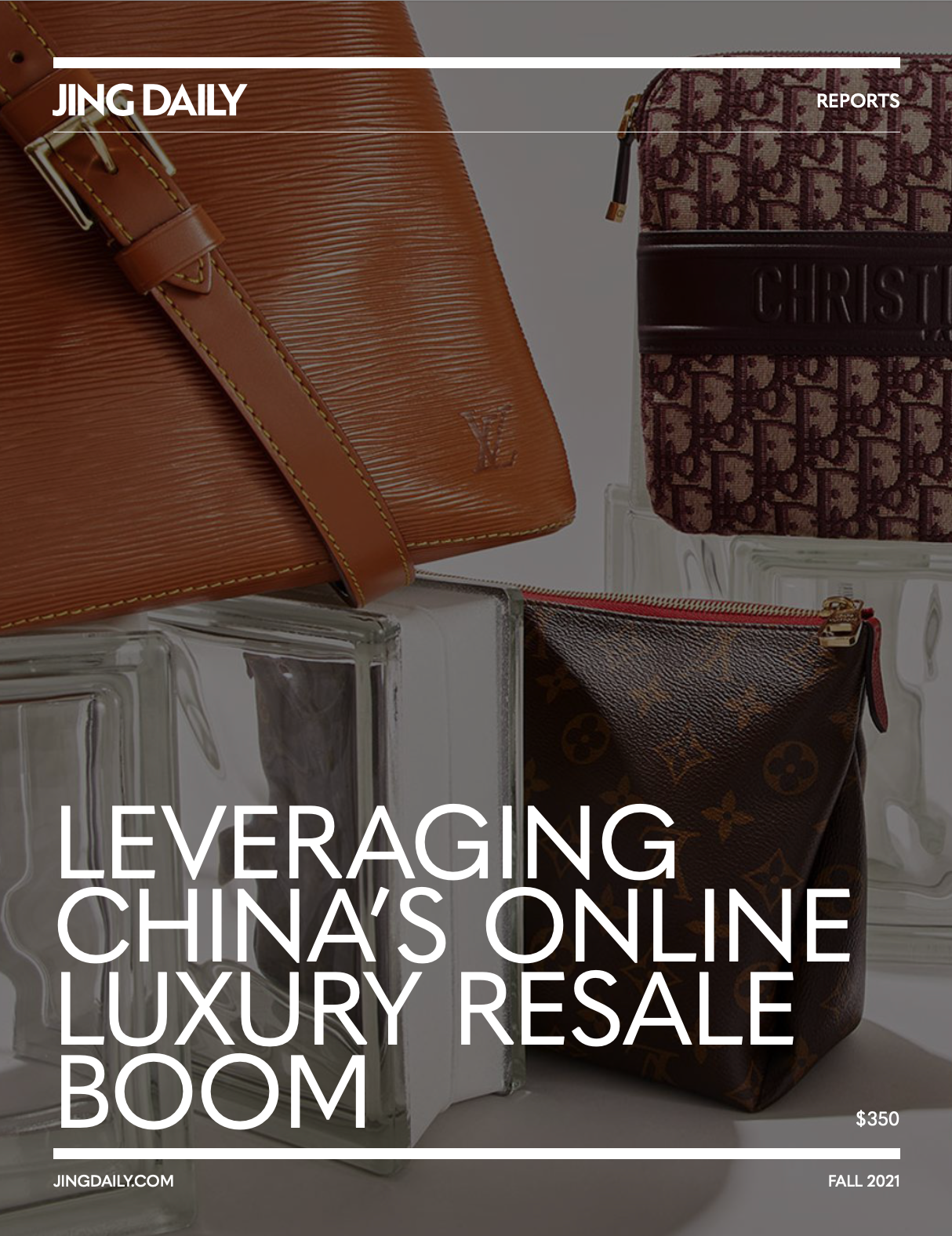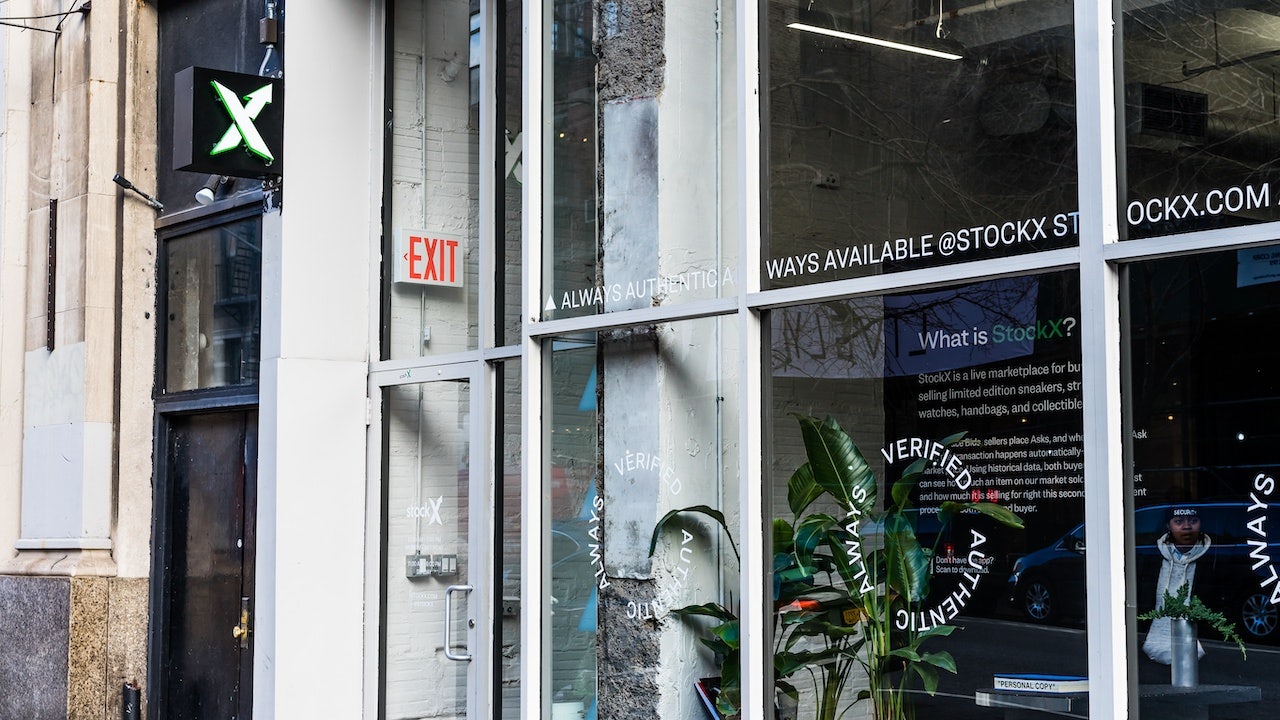Jing Daily’s insight report “Leveraging China’s Online Luxury Resale Boom” is available for purchase on our Reports page. Packed with 68 pages of market research, exclusive interviews, and on-the-ground consumer insights, the report is a must-read for anyone interested in tapping one of China’s fastest-growing luxury retail segments. Get your copy of the report here.#
International luxury resale platforms hoping to tap the Chinese market will need to consider the strengths and differentiators that can help them compete with nimble and well-capitalized domestic rivals.
Two ways that global players can compete are by emphasizing their ability to source from overseas and by trumpeting their authentication credentials. Unlike global platforms like The RealReal or Vestiaire Collective, both of which are able to procure luxury goods from sellers around the world, Chinese platforms operating under a consignment model generally source from sellers based in the country, while those using a “vintage store” model purchase the items for storage in their own warehouse facilities.
But China’s secondhand luxury inventory is heavily dependent on what Chinese consumers have purchased and are willing to part with (for consignment-model platforms) or on the sourcing abilities of the in-house buyers (for the vintage store model). Meanwhile, international platforms have users dispersed around the world and can boast a steady stream of inventory that is less dependent on the tastes of consumers in one particular market.
That type of sourcing prowess has been noted with the entry of sneaker resale powerhouses like StockX and GOAT into the Chinese market. In 2019, GOAT launched a China-specific app and WeChat mini program as part of a broader effort to establish a local presence that could offer a customer service experience tailored to Chinese needs. As CEO Eddy Lu noted at the time, “We know China is a unique market and if we use the same strategy as the U.S., we’ll likely fail.” On the heels of the company’s $195 million fundraising round in June 2021, GOAT noted plans to enlarge its footprint in China along with expanding into markets such as Japan and Singapore. The company is also gravitating towards the trending concept of “retail fluidity,” selling both new and used items on its platform — a natural progression for sneaker resale platforms, considering that their stock-in-trade is the sale of unworn items in mint condition.

In 2020, GOAT’s chief competitor StockX opened an authentication center in Hong Kong and launched localized operations in mainland China to tap the booming secondary market demand for hard-to-get, authenticated sneakers. As China’s develops into a key market for sneaker and streetwear resale, these international platforms can serve an important role in normalizing the buying and selling of used (or still new-in-box) items. Torsten Stocker of Thakral Corporation noted that “GOAT and other sneaker resale platforms are creating the foundation for broader vintage and collectables trading.”
And by moving beyond sneaker resale, global players like StockX are poised to benefit even more in China as its collector class grows in size and influence. Discussing a mid-year report on market trends in July 2021, StockX CEO Scott Cutler noted “strong synergies between our core sneaker enthusiasts and those customers who are passionate about apparel, accessories, collectibles, and gaming.”
Globally, the sneaker resale market continues to rise, and China could become a key battleground for well-capitalized overseas platforms. In July 2021, Japan’s SODA, which operates sneaker resale platform SNKRDUNK, raised $56.4 million in its series C round, led by the early-stage venture arm of SoftBank Group, and soon after announced the acquisition of its closest competitor, Monokabu. The merger will give SODA an estimated 80 percent share of Japan’s sneaker resale market, and the company has ambitions to expand throughout Asia.
Authentication is arguably the most important selling point for a resale platform, especially in a market as rife with knock-offs as China, and global platforms may be able to offer greater assurance to Chinese consumers. For example, The RealReal beefed up its authentication infrastructure after encountering some high-profile lapses in 2019, and now pushes a zero-tolerance policy boosted by trained human examiners with AI support. Vestiaire Collective subjects every item ordered with authentication to physical inspection by an in-house team and will cancel the sale of any item that cannot be confirmed as genuine.
Trustworthy authentication is a key selling point for global auction houses as they turn luxury resale into a larger part of their businesses. In December 2020, Sotheby’s launched its Buy Now marketplace to offer secondhand luxury handbags, watches, and even sneakers, leveraging the auction house’s globally recognized stamp of approval to draw a new clientele who may be wary of the risks of counterfeits on smaller platforms.
According to Cynthia Houlton, VP, Global Head of Fashion & Accessories at Sotheby’s in New York, Chinese consumers are attracted to the Buy Now platform both for its convenience as well as the trust they place in the Sotheby’s name. Houlton notes the platform has seen strong interest in Chanel and Hermès among Chinese consumers, “in part due to lack of availability in stores and demand for previous season or discontinued items.” Regarding how the auction house has tailored the Buy Now offering to the demands of Chinese consumers, Houlton adds that the “marketing focus is localized and as we expand we will review other ways to improve the experience to Chinese consumers.
Sotheby’s competitor Christie’s, while not offering a platform comparable to Buy Now, regularly holds auctions of secondhand luxury goods that allow consumers to bid on similarly authenticated goods in person or online.
